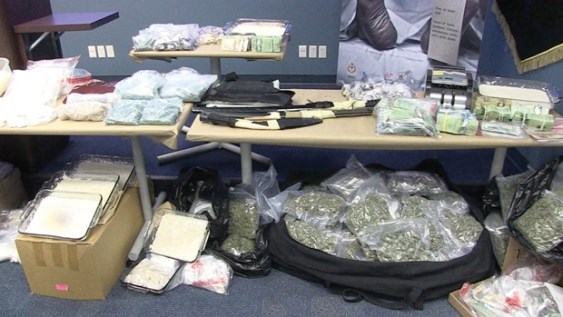A young couple and 31-year-old man from North Vancouver who died of drug overdoses recently are among 12 fentanyl-related deaths in the Lower Mainland within the last month that prompted health authorities to put out more public safety warnings this week.
“It’s very concerning,” said Dr. Mark Lysyshyn, the North Shore’s medical health officer, speaking about the local fentanyl fatalities.
Fentanyl, a dangerous synthetic opioid 100 times more powerful than morphine, has been surreptitiously infiltrating the street drug scene across Canada and killing both addicts and recreational drug users.
B.C. alone experienced a seven-fold increase in fentanyl-related deaths from 2012 to 2014, when 90 people overdosed. The B.C. Coroners Service released alarming statistics this week that show the province may see a similar number of fentanyl overdoses this year.
There were 54 drug overdose deaths in which fentanyl was detected in the province during the first five months of 2015.
Lysyshyn said a study this spring showed the drug is definitely on the North Shore, and many people have no idea they’re taking it. North Vancouver was one of Vancouver Coastal Health’s sites that took part in a study to test drug users’ urine for fentanyl.
“So we did know that drug users in North Vancouver were being exposed to fentanyl,” said Lysyshyn.
Across the Lower Mainland region, one-third of those studied tested positive for fentanyl, with three quarters of them unaware that was the drug they had taken.
There is no widely available test for drug users to know exactly what they are taking, said deputy provincial health officer Dr. Bonnie Henry this week.
There is an antidote, however, if an opiate overdose is suspected. While only available with a prescription at the moment, B.C.’s health officers are pushing for Health Canada to make Naloxone (also known as Narcan) more readily and widely available over the counter at pharmacies.
Lysyshyn agrees it’s an important step, adding it would take away the stigma of going to a harm reduction program, which is where Naloxone kits are currently available.
There are two Vancouver Coastal Health clinics on the North Shore that provide Naloxone, one in Lower Lonsdale and one on East 15th Street.
In order to qualify for a Naloxone kit, patients meet with a nurse who determines if they are at risk for an opiate overdose. Then they get some training on how to administer the Naloxone by injection.
“It’s an incredibly safe medication so there are not adverse effects to taking it,” said Lysyshyn.
Lysyshyn estimates five or six Naloxone kits have been handed out since the spring when they were first made available on the North Shore, but he’s not aware of any overdose reversals here.
Meanwhile, health officials are warning drug users not to take opiates without another person present as they struggle to get a handle on what they describe as a challenging and complex problem with fentanyl.
While fentanyl overdoses have existed among habitual drug users for a while, Henry said it’s become more of a public issue now that a young couple and a teenager have died. North Vancouver’s Hardy and Amelia Leighton, 31 and 30, died after taking a drug laced with a lethal dose of fentanyl July 20, leaving behind a toddler.
Ten days later a 31-year-old North Vancouver man also died from a fentanyl overdose.
An acquaintance said the man left behind a two-year-old daughter.



